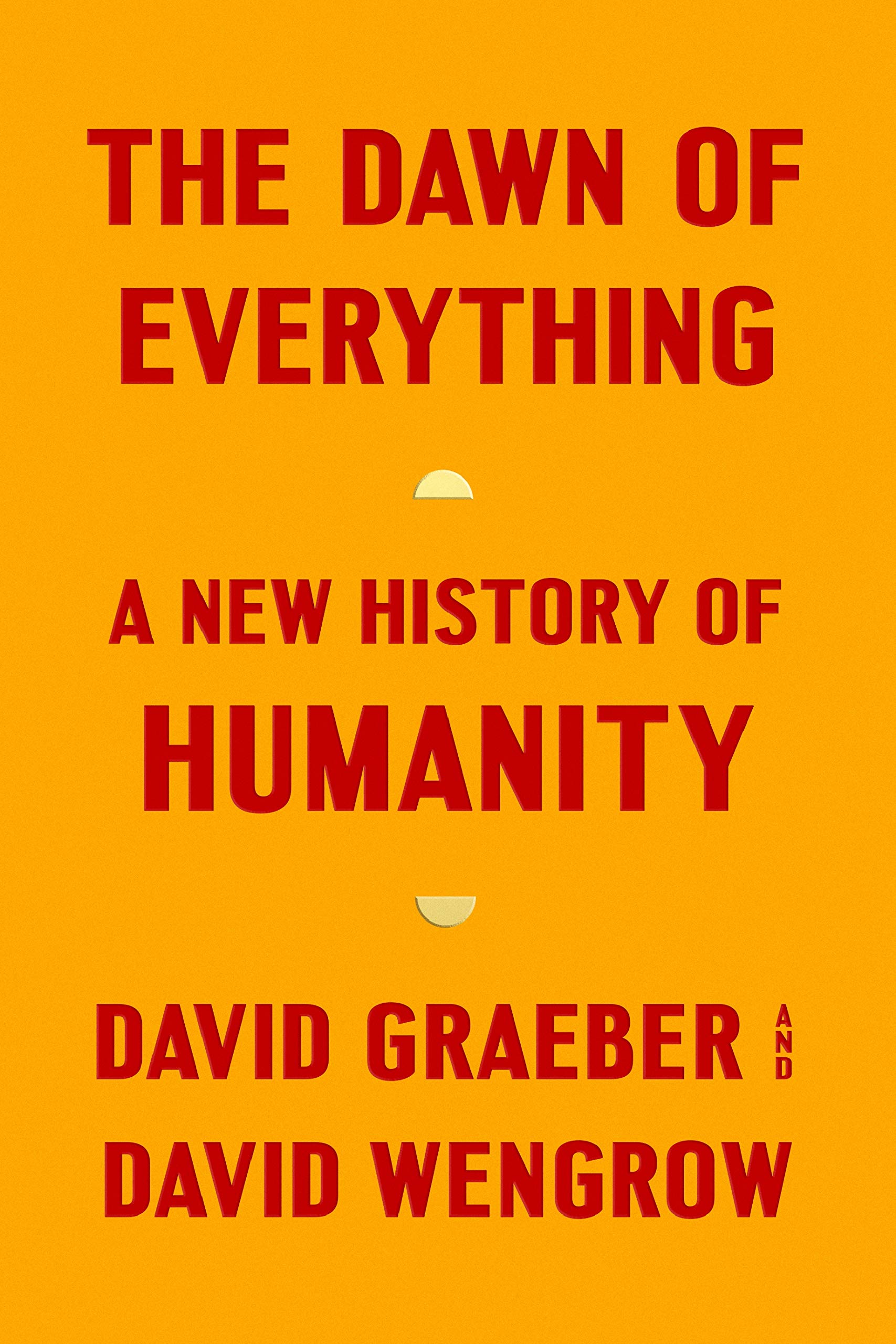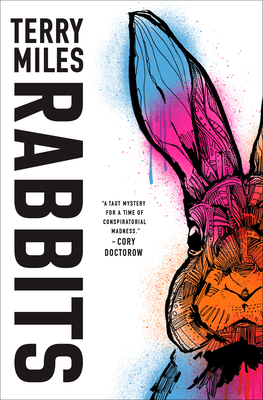nigini rated The Dawn of Everything: 4 stars

The Dawn of Everything by David Wengrow, David Graeber
The renowned activist and public intellectual David Graeber teams up with the professor of comparative archaeology David Wengrow to deliver …
This link opens in a pop-up window

The renowned activist and public intellectual David Graeber teams up with the professor of comparative archaeology David Wengrow to deliver …
"If something did go terribly wrong in human history — and given the current state of the world, it’s hard to deny something did — then perhaps it began to go wrong precisely when people started losing that freedom to imagine and enact other forms of social existence, to such a degree that some now feel this particular type of freedom hardly even existed, or was barely exercised, for the greater part of human history."
"Those ideas about liberty had a profound impact on the world. In other words, not only did indigenous North Americans manage almost entirely to sidestep the evolutionary trap that we assume must always lead, eventually, from agriculture to the rise of some all-powerful state or empire; but in doing so they developed political sensibilities that were ultimately to have a deep influence on Enlightenment thinkers and, through them, are still with us today."
"Even if you shoot the trespassers yourself, you still need others to agree you were within your rights to do so. In other words, ‘landed property’ is not actual soil, rocks or grass. It is a legal understanding, maintained by a subtle mix of morality and the threat of violence. In fact, land ownership illustrates perfectly the logic of what Rudolf von Ihering called the state’s monopoly of violence within a territory — just within a much smaller territory than a nation state."

It's an average work day. You've been wrapped up in a task, and you check the clock when you come …
Escutei o livro em duas pegadas, enquanto dirigia por dois dias. Estória interessante e diferente, mas acho que não se decidiu entre ciência ficção e fantasia. Os diálogos da protagonista são as vezes irritantes e repetitivos, a estória chega num final meio rápido demais, mas eu fiquei bem vidrado na estória.
No evidence was unearthed of centralized government or administration -- or indeed, any form of ruling class. (...) We have a tendency, Le Guin notes, to write off such a community as ‘simple’, but in fact these citizens of Omelas were ‘not simple folk, not dulcet shepherds, noble savages, bland utopians. They were not less complex than us.’ The trouble is just that ‘we have a bad habit, encouraged by pedants and sophisticates, of considering happiness as something rather stupid.’
" Diverse voices have long warned against the expansion of economic logics, crowding out space for democratic politics in public life (...) the neoliberal aspiration for economics to guide all aspects of society represents a threat to democracy and human personhood. (...) The things not visible to the market, that is, become unthinkable. The market dictates a neoliberal people’s range of options. If the market cannot see a changing climate, there is no motivator for acting on it. If the market does not recoil at the plight of homelessness, neither can we, if we learn to be what the market sees in us. "
"How the myth that foragers live in a state of infantile simplicity is kept alive? (...) The real answer, we suggest, has more to do with the legacy of European colonial expansion; and in particular its impact to both indigenous and European systems of thought, especially with regard to the expression of rights of property in land. (...) Colonial appropriation of indigenous lands often began with some blanket assertion that foraging peoples really were living in a State of Nature - which meant that they were deemed to be part of the land but had no legal claims to own it. The entire basis for dispossession, in turn, was premised on the idea that the current inhabitants of those lands weren’t really working." (Pages 148-149)
"[Boehm] argues that while humans do have an instinctual tendency to engage in dominance submissive behaviour, no doubt inherited from our simian ancestors, what makes societies distinctively human is our ability to make the conscious decision not to act that way. Carefully working through ethnographic accounts of existing egalitarian foraging bands in Africa, South America and Southeast Asia, Boehm identifies a whole panoply of tactics collectively employed to bring would-be braggarts and bullies down to earth — ridicule, shame, shunning (and in the case of inveterate sociopaths, sometimes even outright assassination) — none of which have any parallel among other primates."
"By far the most common reasons [staying with adoptive native tribes], however, had to do with the intensity of social bonds they experienced in Native American communities: qualities of mutual care, love and above all happiness, which they found impossible to replicate once back in European settings. ‘Security’ takes many forms. There is the security of knowing one has a statistically smaller chance of getting shot with an arrow. And then there’s the security of knowing that there are people in the world who will care deeply if one is." (page 20.)
"Authoritarianism today takes different forms than it did in the past, adapting its tactics against those of democracy. For democracy to thrive, its institutions must be vulnerable to continual reinvention. Its traditions must be alive enough to permit that. The task of making online spaces governable, therefore, should begin with imaginations radical enough to transcend existing institutions, together with the playfulness to hone imagination in practice."
"It’s strange that his ghost won't abandon me. It is the type of strange that compels me to take each bottle from my trash and consider the volume of my stomach. I want to consider what I poured into myself and how my father made a life of not remembering. I know the limit of what I can contain in each day. Each child, woman, and man should know a limit of containment. Nobody should be asked to hold more."